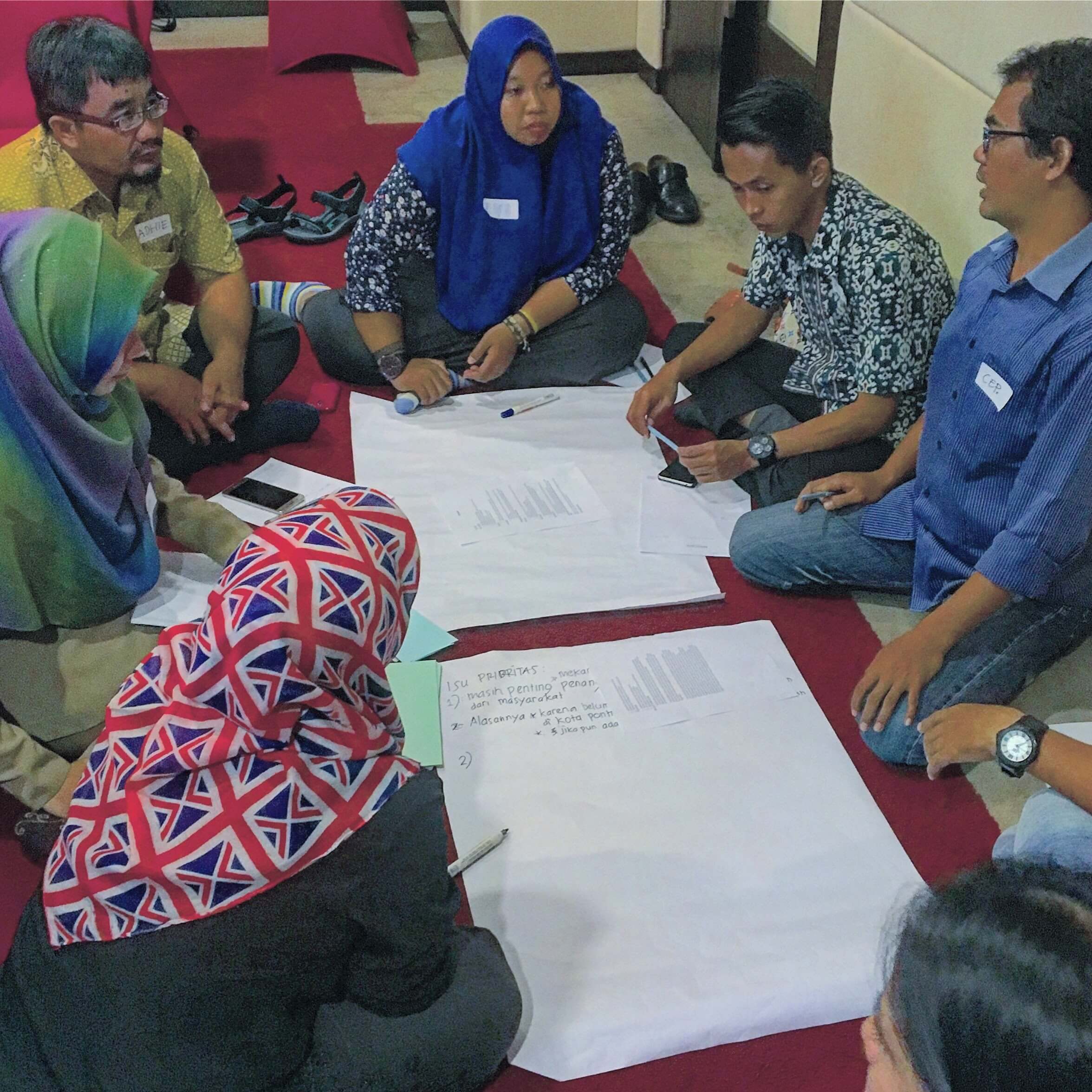Tale of Three (Indonesian) Cities: OpenGov & Technology

In November 2016, NDI convened government officials and citizen leaders for workshops in three cities in order to assess progress on strategic innovation plans, and discuss approaches to technology and open data that would improve citizen engagement and service delivery.
In 2015, Kompas Newspaper and the Bandung Institute of Technology (ITB) reviewed cities across Indonesia and ranked the top 15 in a Smart City Index. NDI met with Kompas to gather information on the Smart City Index methodology and learn about the approaches used by smart city governments. Following these discussions, NDI identified three target cities to engage in its pilot project – Tangerang, Pontianak and Mojokerto – based on the Smart City Index, a strong presence of local civil society partners, and no local elections scheduled for 2016.
Pontianak
The first workshop was held in Pontianak, a city of 570,000 people and the capital of the Indonesian province of West Kalimantan. NDI facilitated a multi-stakeholder forum where civil society and local government representatives refined their smart city action plans to focus on a single public policy challenge.
The city government of Pontianak has been supportive of the initiative to collaborate with different stakeholders and has identified priority areas that would be used as the pilot data set for their first open data initiatives. In furthering their collaboration plan, they’ve held several multi-stakeholder fora which included academics, local government, CSOs, and other key constituents. They considered hosting a hackathon, but decided in the short term it’s not what the city needed.
In meetings with the city government of Jakarta, Pontianak leaders took away best practices on how to collaborate with civil society organizations and increase citizen participation in solving city problems through technology or media.
As a result of this initiative, the city government of Pontianak has strengthened its engagement with civil society groups, particularly in identifying tangible solutions to city problems and improvements in public service delivery. Existing city priorities raised in the workshop included: concern and lack of information about water quality; lack of hospital services outside of city center; traffic problems linked to road infrastructure; increase of pollution due to availability of credit for motorcycles and cars; lack of green/public spaces; waste management issues.
Existing citizen engagement mechanisms include: government maintained social media accounts about which citizens expressed concerns about concrete follow-up; a regular talk show on TV and radio, run by the Mayor and government units, for informing community about issues; and Face-to-Face meetings through community forums. In Pontianak, the city will soon launch a digital complaint mechanism which operates similar to Jakarta’s Qlue, and allows users to take photos of service delivery issues. CSO leaders at the workshop suggested that previous complaint mechanisms need improvements as did public participation during the planning process.
The IT community and government are well-connected, and several vendors were present at the workshop. The city government of Pontianak has developed a formal IT group, registered under the city government of Pontianak through a formal MOU to support with communications and data tools. Tech community representatives took a strong interest in several DemTools, and hope to pattern their efforts on similiar methodologies.
Next steps for the initiative will include government steps to identify gaps in the existing feedback mechanisms, and to address these weaknesses concretely.
